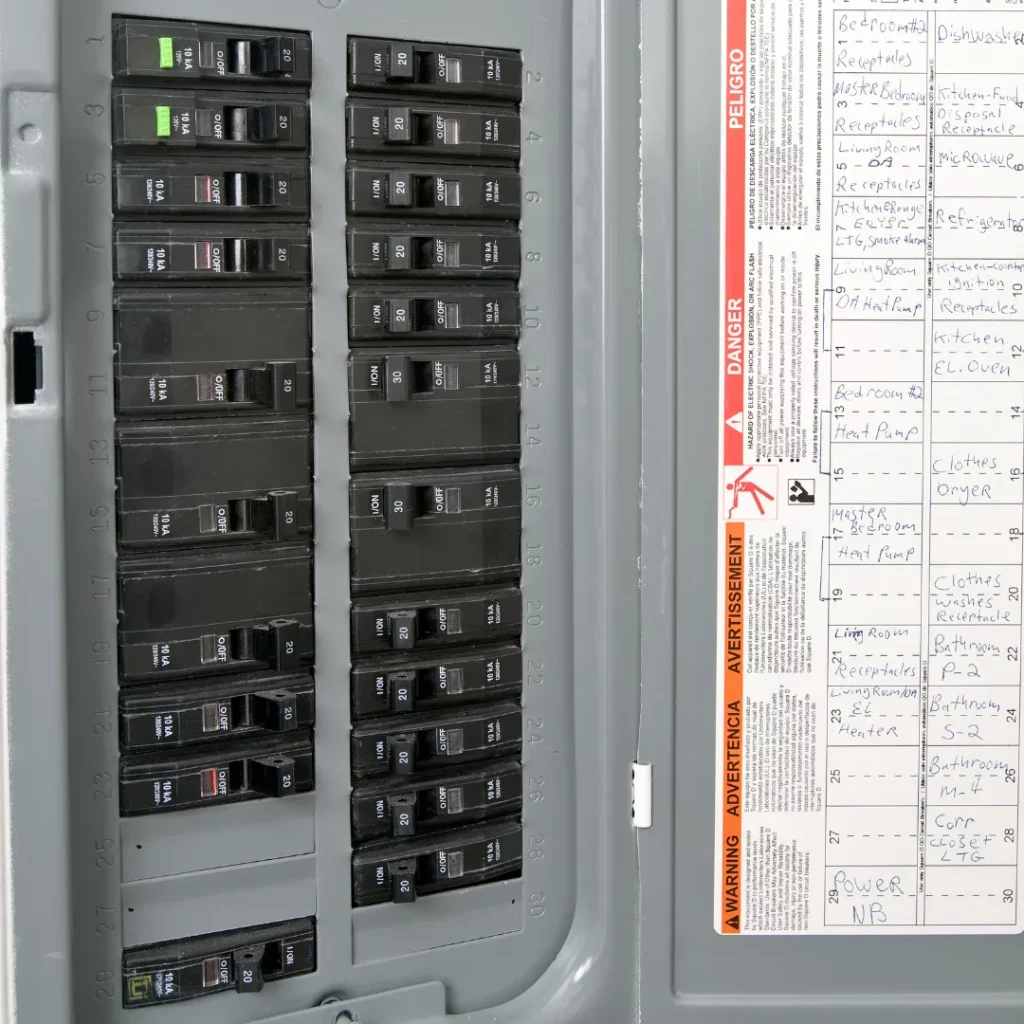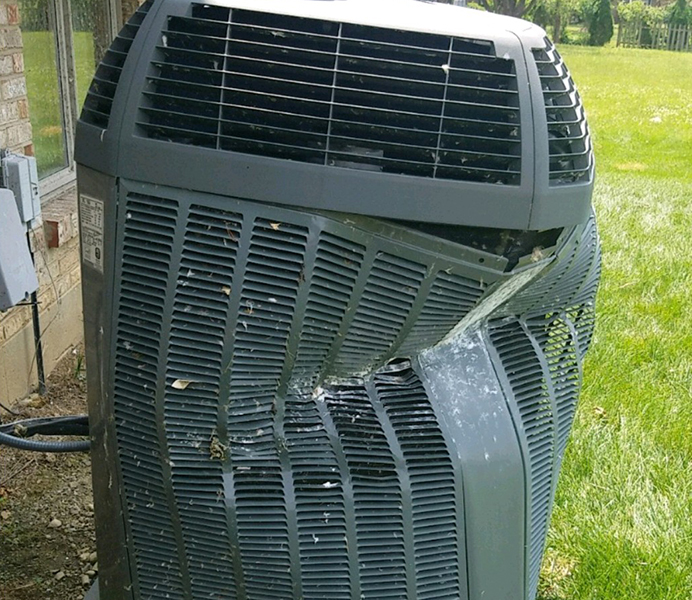Severe weather conditions can cause damage to your air conditioning unit. Knowing how to identify the signs of damage after a storm can help you prevent further issues and ensure your unit is working efficiently. In this article, we will discuss the different signs of storm damage on your air conditioner, what to do if you experience these issues, and answer some frequently asked questions related to this topic.
Physical Damage on the Unit
Heavy wind is one of the primary culprits of air conditioner damage caused by storms. These heavy winds might carry dust, debris, and even small rocks that damage the outdoor unit of your air conditioning system. Here are some examples of physical damage caused by storms and heavy winds:
1. Bent/Damaged Condenser Fins – These can obstruct airflow and reduce your air conditioner’s efficiency.
2. Refrigerant Leak – This can have severe repercussions on your AC system and indoor air quality.
3. Damaged Electrical – Electrical damage might result from falling tree branches or wind-driven debris striking the outdoor unit.
4. Damaged Line Set – This can result in a loss of cool air and poor performance of your air conditioner.
Air Conditioner Not Cooling
Nothing is more frustrating than having your air conditioner not effectively cooling your home, especially during hot summer days. In addition to AC storm damage. there are other factors that might lead to such problems. Various conditions might affect your air conditioning system’s ability to produce cool air. Let’s take a look at some possible reasons and how to address them:

5. Circuit Breaker Trip – Can prevent your AC from powering on. To resolve this issue, locate your circuit breaker panel and reset the breaker connected to your AC unit by switching it off and then on again.
6. Dirty or Clogged Air Filter – This can obstruct airflow, leading to reduced cool air output from your AC unit and decreased efficiency. Regular air filter replacement or cleaning should be a part of your routine AC system maintenance.
7. Refrigerant Issues – As mentioned earlier, a refrigerant leak might lead to low refrigerant levels, causing your air conditioner to work harder to cool your home.
8. Dirty Coils – Evaporator and condenser coils in your air conditioning system play a crucial role in cooling your indoor air. These coils might accumulate dirt and debris over time, reducing their efficiency and impairing your air conditioner’s ability to provide cool air
Being proactive and addressing these issues at the earliest will not only keep your air conditioning system in good working condition, but also prolong its lifespan. Talk to an HVAC professional for advice.
Burning Smell After a Power Surge
If you’ve recently experienced a power surge or power surges to your premises and notice a burning smell coming from your air conditioning unit or vents, it’s crucial to take immediate action.

9. Burnt Electrical Components – Power surges can cause extensive damage to various electrical components of your AC system, including the circuit breaker, wires, and capacitor. If you detect a burning smell after a power surge, immediately turn off your air conditioner and contact a professional HVAC contractor to assess and repair the electrical damage.
10. Damaged Motor – Power surges can also severely impact your AC unit’s motor, leading to overheating and, in severe cases, complete failure. Damaged motors will often emit a burning smell when in operation.
11. Malfunctioning Capacitor – The capacitor in your air conditioner plays a critical role in starting and sustaining the operation of the motor and compressor. A power surge can lead to a malfunctioning capacitor, causing your AC system to struggle to start and operate efficiently.
Maintaining Your Air Conditioning System
Regular maintenance is crucial for the long-term performance and efficiency of your air conditioning system. This includes timely inspections, repairs, and replacements, particularly if the AC has sustained storm damage or been exposed to heavy winds. By following these maintenance practices, you’ll ensure a comfortable indoor air environment and enjoy the benefits of air purification, cool air, and energy efficiency.

Choosing the Right HVAC Contractors
When it comes to selecting reputable HVAC contractors, prioritize companies that specialize in commercial HVAC systems, air products, and overall HVAC replacement and repairs. Companies such as Logan Services A/C, Heat & Plumbing can offer dedicated services and expertise, focusing on addressing issues that may arise from storm damage and power surges.
FAQs on Storm Damage to Air Conditioners
What should I do if my air conditioner has sustained storm damage?
If your air conditioner has sustained storm damage, the first step is to turn off the unit and disconnect power. Then, contact a professional AC system repair service to assess the damage and provide appropriate solutions. Do not attempt to repair the unit yourself, as it may lead to further damage or safety hazards.
Can heavy winds damage the outdoor unit?
Yes, heavy winds can cause damage to your air conditioning unit’s outdoor components. Wind-driven debris, such as branches or leaves, can clog the air conditioner’s coils and prevent proper heat exchange. In more severe cases, wind can cause physical damage to the outdoor unit by bending or breaking components. Professional assessment and repair are crucial to prevent long-term damage and ensure your AC system runs smoothly.
How can I protect my air conditioner from storm damage?
There are some ways to protect your air conditioner from storm damage. First, consider blocking the outdoor unit with an enclosure to minimize potential storm damage. It’s important to note that any fencing enclosure should be spaced at least 3 or so feet away from the system so that it can still have adequate airflow. Additionally, keep the surrounding area free of branches, leaves, and debris that could cause damage during heavy winds.





















